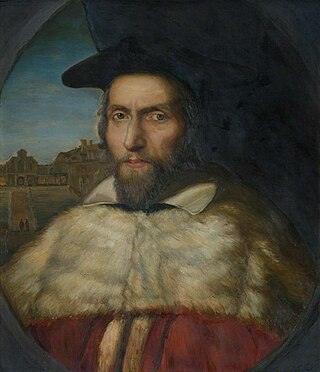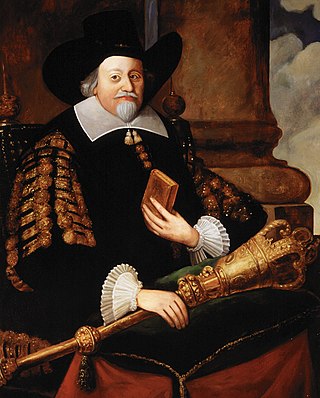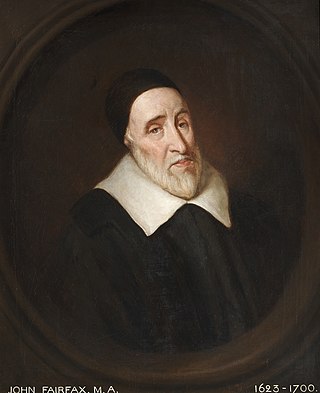Related Research Articles

Edmund Calamy was an English Presbyterian church leader and divine. Known as "the elder", he was the first of four generations of nonconformist ministers bearing the same name.

John Cosin was an English bishop.

Robert South was an English churchman who was known for his combative preaching and his Latin poetry.

George Gillespie was a Scottish theologian.

John Goodwin (1594–1665) was an English preacher, theologian and prolific author of significant books.

Francis Rous, also spelled Rouse, was an English politician and Puritan religious author, who was Provost of Eton from 1644 to 1659, and briefly Speaker of the House of Commons in 1653.
Anthony Burges or Burgess was a Nonconformist English clergyman, a prolific preacher and writer.

Samuel Bolton was an English clergyman and scholar, a member of the Westminster Assembly and Master of Christ's College, Cambridge.

Simeon Ashe or Ash was an English nonconformist clergyman, a member of the Westminster Assembly and chaplain to the Parliamentary leader Edward Montagu, 2nd Earl of Manchester.
Thomas Horton D.D. was an English clergyman, Professor of Divinity at Gresham College in London, and President of Queens' College, Cambridge.

William Jenkyn (1613–1685) was an English clergyman, imprisoned during the Interregnum for his part in the 'Presbyterian plot' of Christopher Love, ejected minister in 1662, and imprisoned at the end of his life for nonconformity.
Daniel Cawdry (Cawdrey) (1588–1664) was an English clergyman, member of the Westminster Assembly, and ejected minister of 1662.
Henry Wilkinson (1610–1675) was an English clergyman, in the Commonwealth period a canon of Christ Church, Oxford, Lady Margaret Professor of Divinity, and member of the Westminster Assembly. Later he was a nonconformist preacher.

William Bates (1625–1699) was an English Presbyterian minister.

John Collinges (1623–1690) was an English Presbyterian theologian, and prolific writer. He lived and worked in Norwich for more than forty years where he played a major role in reviving and administering the City Library. He was one of the representatives of the Presbyterians in the Savoy Conference, but was later forced to resign his livings. Frances Hobart became his patron and he became her personal chaplain. He delivered services in a chapel she created in her Norwich home.

Robert Grove (1634–1696) was an English Bishop of Chichester.
Samuel Clarke or Clark (1626–1701) was an English Nonconformist clergyman known as an assiduous annotator of the Bible.
Edward Bowles (1613-1662) was an English presbyterian minister.

John Fairfax (1623–1700) was an English ejected minister.
Thomas Lye, or Lee, or Leigh, was an English Nonconformist minister.
References
 This article incorporates text from a publication now in the public domain : "Seaman, Lazarus". Dictionary of National Biography . London: Smith, Elder & Co. 1885–1900.
This article incorporates text from a publication now in the public domain : "Seaman, Lazarus". Dictionary of National Biography . London: Smith, Elder & Co. 1885–1900.